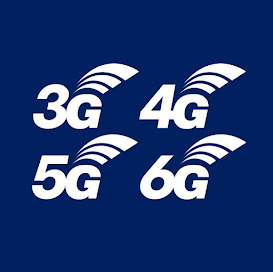 According to a security expert, writing in Cnet:
According to a security expert, writing in Cnet:Bluetooth headset users are at risk because of a security hole in the technology and default PINs that don't get changed, he said. Exploiting vulnerabilities someone can break in and steal data from the phones, make calls without the cell phone owner knowing, listen in on and break into conversations, and even spy on people by turning the device into a bug. He advises that people change the default password, disable the Bluetooth on the phones, turn off the headsets when not in use, and limit access to the data and features when communicating with other Bluetooth devices.
There may be more reasons to switch Bluetooth off.
 According to an article in Guardian:
According to an article in Guardian:Tens of thousands of Britons are being covertly tracked without their consent in a technology experiment which has installed scanners at secret locations in offices, campuses, streets and pubs to pinpoint people's whereabouts.
The scanners, the first 10 of which were installed in Bath three years ago, are capturing Bluetooth radio signals transmitted from devices such as mobile phones, laptops and digital cameras, and using the data to follow unwitting targets without their permission.
The data is being used in a project called Cityware to study how people move around cities. But pedestrians are not being told that the devices they carry around in their pockets and handbags could be providing a permanent record of their journeys, which is then stored on a central database.
The Bath University researchers behind the project claim their scanners do not have access to the identity of the people tracked.
Although initially confined to Bath, Cityware has spread across the planet after the software was made freely available on the internet sites Facebook and Second Life. Thousands of people downloaded the software to equip their home and office computers with Cityware scanners.
More than 1,000 scanners across the world at any time detect passing Bluetooth signals and send the data to Cityware's central database. Those with access to the database admit they do not know precisely how many scanners have been created, but there are known to be scanners in San Diego, Hong Kong, Australia, Singapore, Toronto and Berlin.
In Bath alone scanners are tracking as many as 3,000 Bluetooth devices every weekend. One recent study used the scanners to monitor the movements of 10,000 people in the city.
About 250,000 owners of Bluetooth devices, mostly mobile phones, have been spotted by Cityware scanners worldwide.
Bluetooth tracking technology is already being used to aim advertisements at people, for example as they walk past shops or billboards.
Bluetoothtracking.org, a website based in the Netherlands, is using the same technology to publish live data about people's movements across the town of Apeldoorn. The facility allows people to search the whereabouts of friends and associates without them knowing about it.
Some scientists using the technology describe a future scenario in which homes and cars adapt services to suit their owners, automatically dimming lights, preparing food and selecting preferred television channels.
I like Bluetooth as it makes my life convinient and also because one of our initial projects has been developing of complete Bluetooth marketing solution for a media company. So yes, maybe the next time you go to a shopping mall and get some advertised pumped on your handset using bluetooth then you can blame my company.
Ps: There is another article on Guardian by Dr Vassilis Kostakos from Bath University, defending his team. See here.



